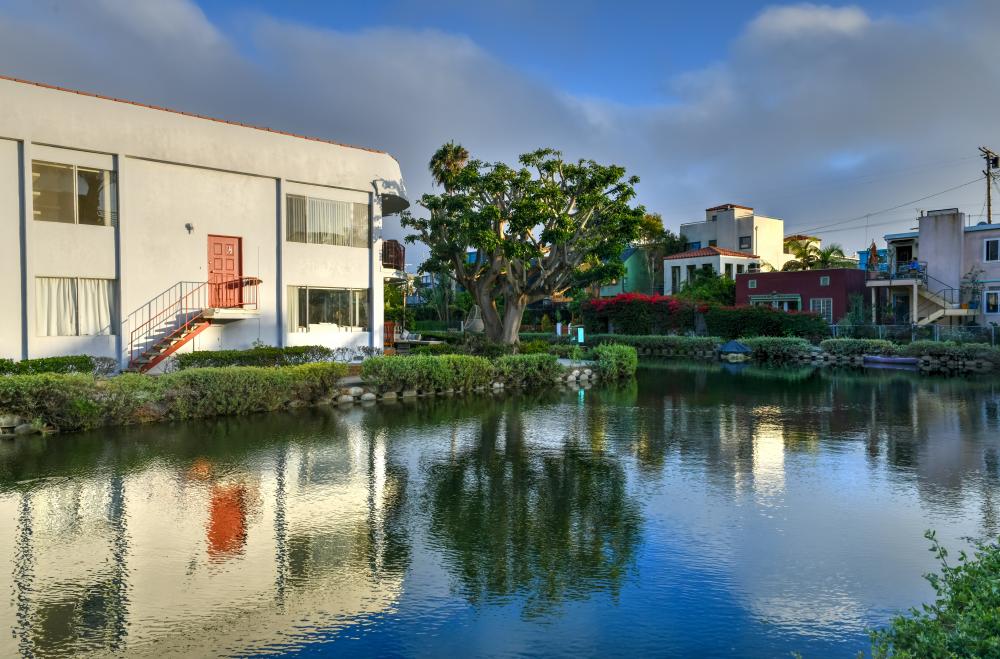Exploring the Addiction Treatment Options in Whittier
When it comes to seeking help for addiction, Whittier offers a variety of treatment options tailored to meet diverse needs. From detoxification programs to outpatient services, the city is equipped to support individuals at different stages of recovery. Facilities like Solace Treatment Center bring comprehensive care to those dealing with various substance use disorders.
Whittier’s treatment landscape includes offerings for specific demographics such as young adults and veterans, ensuring that treatments are not only effective but also considerate of unique life experiences. With the presence of both private and publicly funded centers, those seeking addiction treatment in Whittier can find programs aligning with their financial capabilities.
A critical aspect of successful addiction treatment is the incorporation of holistic therapies such as yoga and meditation, which are increasingly available in Whittier’s programs. This attention to mental and physical well-being helps individuals not only in overcoming addiction but also in rebuilding their lives post-recovery.
What Are the Methods for Achieving Long-Term Recovery?
Effective addiction treatment often combines multiple therapeutic approaches to bolster long-term recovery. At the forefront is cognitive behavioral therapy (CBT), a popular method that helps individuals reframe negative thought patterns and develop healthier coping strategies.
Many centers in Whittier, such as Solace Treatment Center, also emphasize the importance of community involvement and peer support groups like AA or NA. These groups offer a sense of belonging and accountability that can be instrumental in maintaining sobriety outside of formal treatment settings.
For those dealing with co-occurring mental health conditions, integrated treatment plans that address both substance use and mental health disorders concurrently are critical. This dual-diagnosis approach can significantly enhance treatment outcomes.
Another key strategy is ongoing aftercare programs, which may include periodic counseling sessions or alumni support groups. These initiatives help individuals transition smoothly back into their communities while providing a safety net to prevent relapse.
Addressing Common Concerns About Addiction Treatment in Whittier
One prevalent concern among those seeking addiction treatment in Whittier is the cost and accessibility of care. It’s crucial to know that many centers offer sliding scale fees and accept various insurances, including Medicaid and Medicare. Financial assistance and scholarships are also available in some facilities.
Another concern is the stigma associated with seeking treatment. Facilities like Solace Treatment Center prioritize creating a welcoming environment where individuals can feel safe and respected. Staff members are trained to foster an atmosphere of empathy and understanding, vital to overcoming barriers related to stigma.
The quality of care and staff qualifications are also critical considerations. Most reputable centers are accredited by organizations such as the Joint Commission or CARF, ensuring they meet high standards of care. Prospective clients should look for these accreditations as a benchmark for selecting a treatment facility.
How Can I Find the Right Addiction Treatment Whittier for Me?
Choosing the right addiction treatment Whittier can feel overwhelming, but breaking it down into manageable steps can simplify the process:
- Assess your specific treatment needs, considering any co-occurring disorders or demographics-specific requirements.
- Research facilities in Whittier, focusing on those that offer comprehensive care plans and demonstrate a commitment to quality treatment.
- Contact multiple centers to inquire about their programs, costs, and philosophies of care.
- Verify accreditations and consult reviews or testimonials from former clients to gauge the facility’s effectiveness.
- Consider visiting the facilities to get a feel for the environment and meet the staff before making a decision.
Remember, the right program is one that not only addresses substance use disorders but also supports you in rebuilding a fulfilling life post-treatment.
The Role of Mental Health in Addiction Treatment Whittier
Addiction rarely exists in isolation; it often intertwines with mental health issues that require simultaneous attention. In Whittier’s facilities, the emphasis on mental health is becoming increasingly pronounced. Recognizing that treating only the addiction might leave underlying issues unaddressed, centers like Solace Treatment Center offer targeted interventions for co-occurring disorders.
This holistic focus not only aids in more sustainable recovery outcomes but also empowers individuals to lead healthier lives overall. By integrating therapeutic modalities that cater to both mind and body, addiction treatment in Whittier becomes a more supportive process.
What Qualifies as an Addiction Treatment Emergency in Whittier?
An addiction treatment emergency in Whittier is typically defined as a situation where there is a risk of overdose or immediate health dangers related to substance use. In such cases, seeking rapid intervention is crucial. Facilities equipped to handle emergencies prioritize immediate stabilization and ensure the individual’s safety.
Recognizing the signs of an emergency, such as severe withdrawal symptoms or suicidal thoughts, can be life-saving. Whittier offers 24/7 helplines and emergency services where professionals can guide you to the necessary help promptly.
- Persistent substance use despite serious consequences
- Rapid escalation of substance use
- Withdrawal symptoms that are unmanageable at home
- Engagement in risky behavior while under the influence
- Mental health crises triggered by substance use
For immediate assistance, contacting local crisis lines or visiting nearby emergency rooms are recommended steps.
What are the main addiction treatment options available in Whittier?
In Whittier, you’ll find a diverse array of addiction treatment options designed to support individuals at every stage of recovery. These range from detoxification programs to outpatient services. Facilities like Solace Treatment Center offer comprehensive care that’s tailored to various substance use disorders. If you’re a veteran or a young adult, you’ll be pleased to know that specific programs are available to cater to the unique challenges faced by these demographics. The incorporation of holistic therapies such as yoga and meditation can be a game-changer, supporting both your mental and physical well-being. Have you considered which type of program might best suit your personal recovery journey?
How does mental health impact addiction treatment effectiveness in Whittier?
Mental health is a critical component of addiction treatment, as the two often intertwine. At Solace Treatment Center, we recognize the importance of addressing both addiction and any co-occurring mental health issues simultaneously. This dual approach not only helps you tackle substance use but also empowers you to confront any underlying mental health symptoms. Our integrated therapeutic modalities aim to provide holistic support, ultimately leading to more sustainable recovery outcomes. Have you considered how mental health influences your journey to recovery?
What are effective methods for achieving long-term recovery from addiction?
Achieving long-term recovery is about combining several therapeutic approaches. Cognitive Behavioral Therapy (CBT) is widely used to help you reshape negative thought patterns and develop healthier coping strategies. At Solace, we also emphasize community involvement through peer support groups like AA or NA, which are invaluable for maintaining sobriety. Our aftercare programs, including alumni support, offer continued guidance as you reintegrate into daily life. Are you utilizing these strategies to support your recovery process?
How can someone choose the right addiction treatment program in Whittier?
Choosing the right program involves assessing your specific needs, especially if you have co-occurring disorders or specific demographic considerations. Research facilities like Solace Treatment Center for those offering tailored, evidence-based care. It’s wise to verify accreditations and seek testimonials from past clients. Visiting facilities can also give you a feel for the environment and staff. Remember, the right program will address substance use and support rebuilding a fulfilling life. What steps have you found most challenging in selecting a treatment program?
What are some common concerns about addiction treatment in Whittier, and how are they addressed?
Common concerns often include the cost and accessibility of care. Many centers, including Solace, offer sliding scale fees and accept various insurances, which can make treatment more affordable. Another worry is stigma, but we pride ourselves on fostering a respectful and empathetic environment. With staff trained to prioritize compassionate care, stigma becomes less of a barrier. Ensuring high standards, we also emphasize staff qualifications, with many of our facilities accredited by esteemed organizations. Do you have any concerns you’d like addressed about starting treatment?
What qualifies as an addiction treatment emergency in Whittier?
An addiction treatment emergency typically involves a risk of overdose or immediate health dangers related to substance use. Rapid intervention is essential in such cases, and facilities like ours prioritize immediate stabilization. Recognizing signs like severe withdrawal symptoms or suicidal thoughts can be life-saving. Whittier offers 24/7 helplines for guidance. What measures do you think are vital in handling these emergencies effectively?
How important is community and peer support in addiction recovery?
Community and peer support are crucial for maintaining sobriety. They provide a sense of belonging and accountability, helping you stay focused on recovery goals. At Solace, we encourage involvement in groups like AA or NA. These communities can offer both emotional support and practical advice, often making a significant difference in your journey. Have you found a support group that resonates with you on your path to recovery?




